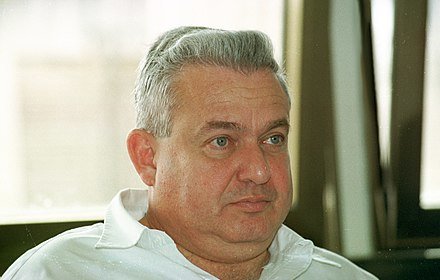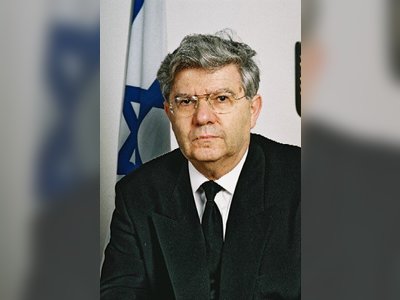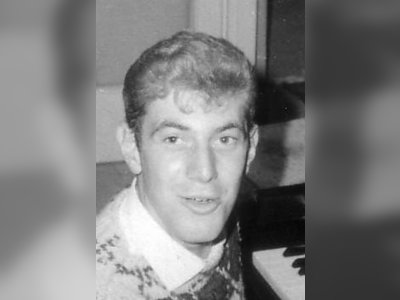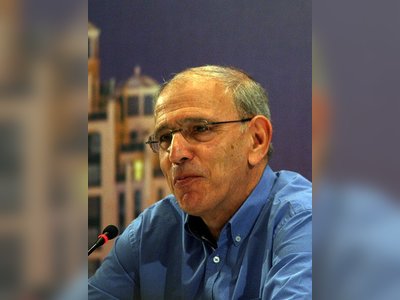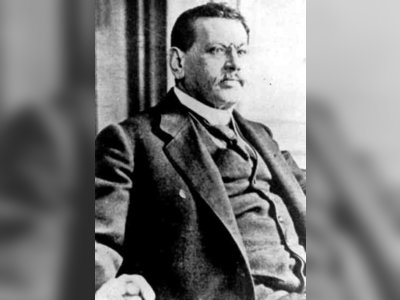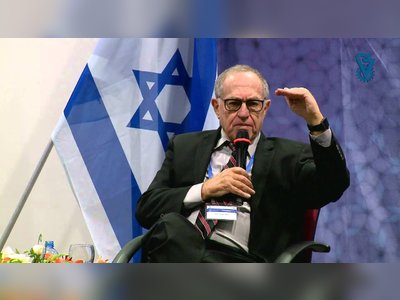Dror Hatar-Yishai: A Biography of Legal and Business Luminary
Dror Hatar-Yishai, born on October 28, 1946, is an Israeli attorney and businessman who served as the president of the Israel Bar Association from 1991 to 1999. His life and career have been marked by a commitment to upholding legal principles and promoting ethical conduct within the legal profession.
Early Life and Education
Hatar-Yishai was born in Haifa, Israel, and his father, Aharon Hatar-Yishai, was the first chief military prosecutor. He initially attended elementary school in Carmel, Haifa, and later moved with his family to Tel Aviv, where he attended Tel Aviv Municipal High School "Aleph."
In 1964, he joined the Israel Defense Forces (IDF) and served in the Paratroopers Brigade. Concurrently with his military service, he began studying law in the evening program at the Hebrew University's Tel Aviv branch.
In 1966, after completing his regular military service, Hatar-Yishai began working as an apprentice in his father's law firm, "A. Hatar-Yishai & Partners," where he honed his legal skills from 1968 to 1970. In 1969, he graduated with a Bachelor of Laws (LL.B.) degree from the Faculty of Law at the Hebrew University. On October 30, 1970, he received his law license.
Professional Career
In 1973, Hatar-Yishai took over the management of his father's law firm when his father moved to Ein Gav. He handled various legal proceedings, including complex criminal cases, administrative appeals, civil liability claims, labor disputes, election disputes, and land-related matters. He represented diverse clients, including local authorities and private individuals.
In 1987, he founded an independent list in the elections for the Israel Bar Association, which became the largest in the association, and he was elected as the chairman of the Tel Aviv District of the Israel Bar Association. In 1991, he was elected as the president of the Israel Bar Association, and in 1995, he was re-elected with a significant majority of the votes.
During his tenure, he restructured the association, reduced membership fees, improved member services, and established efficient offices in various regions. He believed in the rule of law and democratic principles, emphasizing that every authority should fulfill its role within the legal framework. He promoted an ideological approach to addressing systemic issues, expanding transparency within the legal system, and initiating legislative amendments on various matters.
Hatar-Yishai represented clients in a wide range of cases, including criminal defense in cases of murder and manslaughter, civil cases involving inheritance, wills, real estate, corporations, torts, labor law disputes, and more.
Some notable cases included the "Bus 300 affair," where he represented Colonel Yitzhak Mordechai, who was acquitted of any wrongdoing after being accused of killing two captured terrorists; representing local council leaders in corruption cases; and handling hundreds of cases involving victims of bank fraud perpetrated by banks such as Mizrahi and Discount.
Legal Philosophy and Controversies
Hatar-Yishai held an ideological stance that differed from the then-President of the Supreme Court, Justice Aharon Barak. He argued that not all decisions of the executive and legislative branches should be subjected to judicial review, advocating for a reasonable and proportionate approach.
He strongly criticized the "symbiosis" between law enforcement agencies, the media, and the judicial system, working to change the appointment process for judges to include a majority from the ranks of practicing attorneys rather than former prosecutors.
In November 1996, he was interviewed by the press about the ideological conflicts between the Israel Bar Association, which he led, and the Supreme Court's President, Justice Barak.
Legal Charges and Acquittal
In December 1996, Hatar-Yishai was charged with tax-related offenses, specifically for allegedly failing to report income from a property he did not own and advising his partner on how to evade taxes. He maintained that these charges were unfounded, explaining that the property belonged to his father, who had been reporting the income and paying the taxes for decades.
Hatar-Yishai's partner testified that he had not received any advice from him and had not evaded taxes. No charges were filed against the partner. Hatar-Yishai announced his resignation from the judicial appointments committee, believing it was inappropriate to serve on it while facing criminal charges. Attempts to remove him from his position as the head of the Bar Association failed.
A year later, the prosecution withdrew the tax evasion charges against Hatar-Yishai but sought to charge him with advising his partner in his father's firm. In February 1998, he was convicted of advising his partner, although he later agreed to amend some of his statements.
In June 1998, the Ethics Committee of the Israel Bar Association decided to bring Hatar-Yishai to disciplinary proceedings after charges were filed against him for contempt of court related to his handling of clients' funds.
Subsequent Legal Proceedings
In March 2009, the Tel Aviv District Court rejected his appeal against a judgment that required him to return money to clients, which he had held in trust but failed to transfer, without claiming it as fees. Hatar-Yishai filed a counterclaim alleging malicious prosecution, which was dismissed.
Published Work
In March 2021, Hatar-Yishai published his book "The Power for Sale." In the book, he alleges that he has witnessed the manipulation of criminal cases involving government ministers, IDF officers, ordinary citizens, and the misappropriation of funds by public officials. The book provides insights into the inner workings of the legal profession and the struggle to uphold legal principles.
Dror Hatar-Yishai's career has been marked by his commitment to justice, his dedication to ethical legal practices, and his defense of the rule of law in Israel.
- דרור חטר-ישיhe.wikipedia.org
